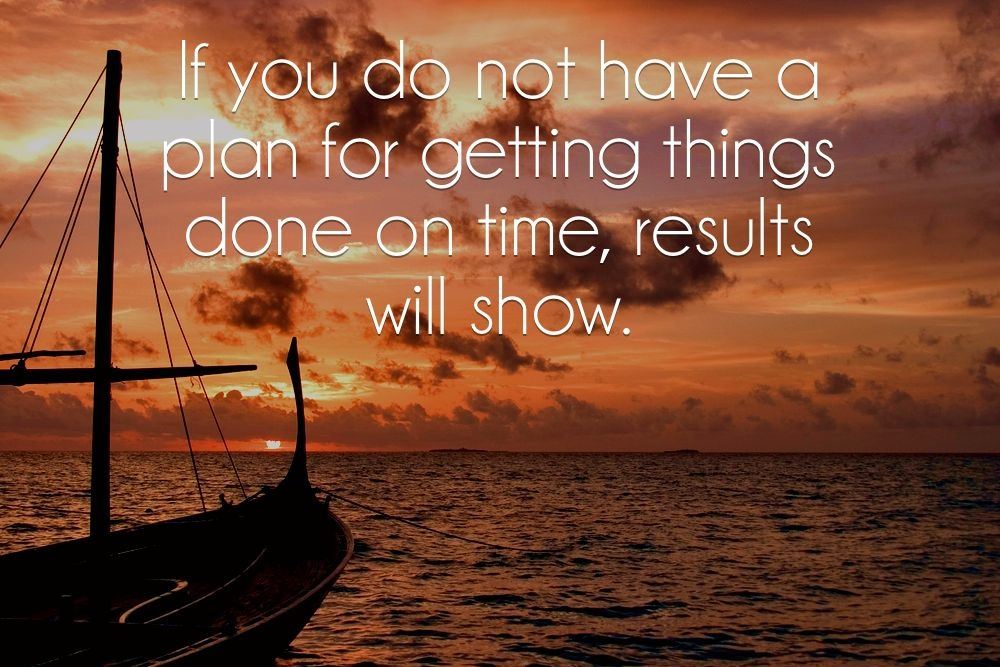During my thirteen years in the US Army Special Forces, I actually learned backward planning before I attended the Special Forces Qualification “Q” Course. My first education in planning came from the US Army Ranger School, which is primarily a leadership course that uses patrolling in harsh conditions to duplicate the stresses of combat. It’s a very demanding course with a planned lack of food and sleep. While some might say that for a lot people, Ranger School was spent in a daze of confusion, hunger and fatigue, backward planning does not mean that you have to plan in confused or awkward manner.
One of the biggest factors that determine whether you get your task completed is effective time management. Without good time management, you will almost always fail. This was beaten into our heads by the Ranger School Ranger Instructors (RI)s: The RI would continually ask us what time was our time to be on target.
Time on Target
Time on target was the time that we had to accomplish a mission—everything else led up to that time. We simply then mentally walked our way backwards, putting time points at each important step. For example, if time on target was at 11pm, than we needed to do a final reconnaissance of the target an hour beforehand. Given backward planning, our time there would be at 10pm. Before that, we had to set up a small patrol base in the area about 15 minutes before. This would be at 9:45pm. It would take us about three hours to get there from where we were at. This meant that we would need to leave at 6:45pm. An hour to get our equipment ready, fifteen minutes to eat, and three hours planning would then mean that we would need to start to get ready at 2:45pm.
Backward Planning
Backward planning lets you know when you need to get started, and also gives you timing points along the way to let you know if you need to adjust your plan in order to get ‘er done when you need to. For example, if we ran late on the planning for the mission above, we might skip eating or cut down on equipment prep time.
Think about how you could apply backward planning in your daily life:
- The kids need to be picked up from school at 3:00 pm.
- You need to pick up the dry cleaning, which is fifteen minutes from the school.
- You’ll need five minutes in the store, so you need to arrive there at 2:40 pm.
- Before, that you’ll meet a friend at a local coffee shop, and take a half an hour for coffee.
- The shop is ten minutes away from the dry cleaners, so you need to arrive at the coffee shop at 2 pm.
- Finally, the coffee shop is twenty minutes from your house, so you need to leave home at 1:40 pm in order to pick up your kids on time.
Your Own Time on Target
Backward planning will help you with anything that has a deadline or a “time on target.” In the Special Forces, we were known for our focus on being on time, which kept us on track and on schedule. In combat, arriving too early might leave you exposed without air cover. Arriving too late at an ambush might mean that you missed your target. Either way was failure.
It might be a good idea to think about this, and why this time management is so essential to success. Perhaps you can begin by thinking of the opposite—ways which do not work. Even if you have one very small task to complete, if you do not manage your time appropriately it may get done too late, or not at all. You may be working on a deadline, or have a task which does not have a specific time to be completed. If you do not have a plan for getting it done on time, results will show.
Game Plan for Success
If you have ever felt that there are not enough hours in a day to do everything you need to do, this will be a very positive step for you, and you will be pleasantly surprised with how much you can accomplish. With a game plan focused on mission completeness, you may find yourself getting more done each day than you usually accomplish in a week. Not only will you be more productive, but achieving each goal will come much easier, and you will soon appreciate this all-important factor in your success.
Featured photo credit: Traditional maldivian Dhoni via Shutterstock













































